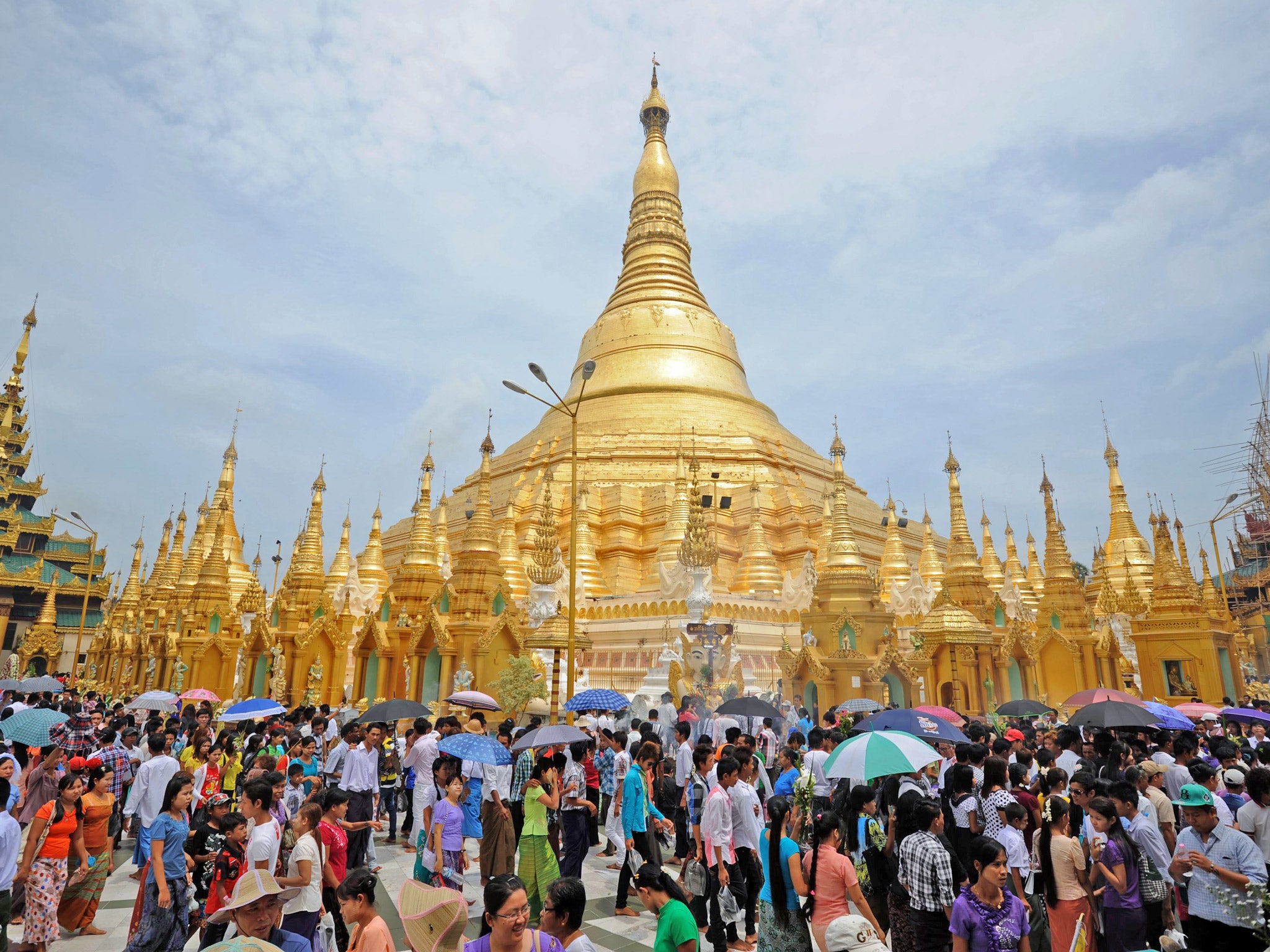Good news for Burma is bad for UN staff losing luxury offices to returning tourists
Prices of 'average' hotel rooms leap from $30 to $100

Your support helps us to tell the story
From reproductive rights to climate change to Big Tech, The Independent is on the ground when the story is developing. Whether it's investigating the financials of Elon Musk's pro-Trump PAC or producing our latest documentary, 'The A Word', which shines a light on the American women fighting for reproductive rights, we know how important it is to parse out the facts from the messaging.
At such a critical moment in US history, we need reporters on the ground. Your donation allows us to keep sending journalists to speak to both sides of the story.
The Independent is trusted by Americans across the entire political spectrum. And unlike many other quality news outlets, we choose not to lock Americans out of our reporting and analysis with paywalls. We believe quality journalism should be available to everyone, paid for by those who can afford it.
Your support makes all the difference.In the latest sign of the pace of change in Burma, the UN is having to leave the offices they have occupied in two luxury hotels because the tourism boom means the owners can earn more by renting them out them out to foreign visitors.
Around ten UN agencies are to vacate the space in the Traders and Inya Lake hotels in Rangoon where they have been based for the last six years. The ownership of the hotels has calculated they can earn more by renting out the rooms to the wave of tourists pouring into Burma.
"We have known about this for some time," the UN's Burma spokesman, Aye Win, told The Independent. "When we signed the leases in August 2012 it was on the basis that they would not go beyond 2013...This is really a story about land prices and rental fees."
The UN moved into the establishments in the centre of Rangoon in 2007. That September the streets of the city were filled with clashes between Buddhist monks and the security forces during the Saffrom Revolution. Tourists were very few in number.
But since the release of opposition leader Aung San Suu Kyi in late 2010 and the lifting of Western sanctions last year, tourist numbers have rocketed. 2012 saw visitor numbers increase by a third and passed the one million mark. That same year, Burma earned $534m from tourism, a 67 per cent increase from 2011.
And with only a limited number of hotels to cater to these visitors, prices of rooms have leapt. Very average hotels that in 2007 charged $30 for a room, can now command more than $100 and occupancy rates are close to 100 per cent. More and more Western hotel chains are announcing plans to build properties.
The World Health Organisation, Unicef, UN Aids, the International Organisation for Migration, the UN Inter-Agency Project on Human Trafficking and the International Labor Organisation all had their Burma headquarters at Traders while the World Food Programme, the UN Office for the Coordination of Humanitarian Affairs and the UN Office for Project Services were located in Inya Lake Hotel.
The Traders Hotel, part of the Shangri-La group owned by Chinese-Malaysian billionaire Robert Kuok, offers rooms from around $235 per night, almost double the price charged by its sister hotel in Hong Kong. Inya Lake's rooms start at $180 per night.
Steve Marshall, the ILO Liaison Officer in Burma, told the Irrawaddy website that Traders had informed all UN agencies in August last year that it would not extend their lease beyond 2013, and that UN organisations at Inya Lake had also been asked to move. "It's not a matter of being thrown out, it's a different commercial environment now," he said.
Join our commenting forum
Join thought-provoking conversations, follow other Independent readers and see their replies
Comments